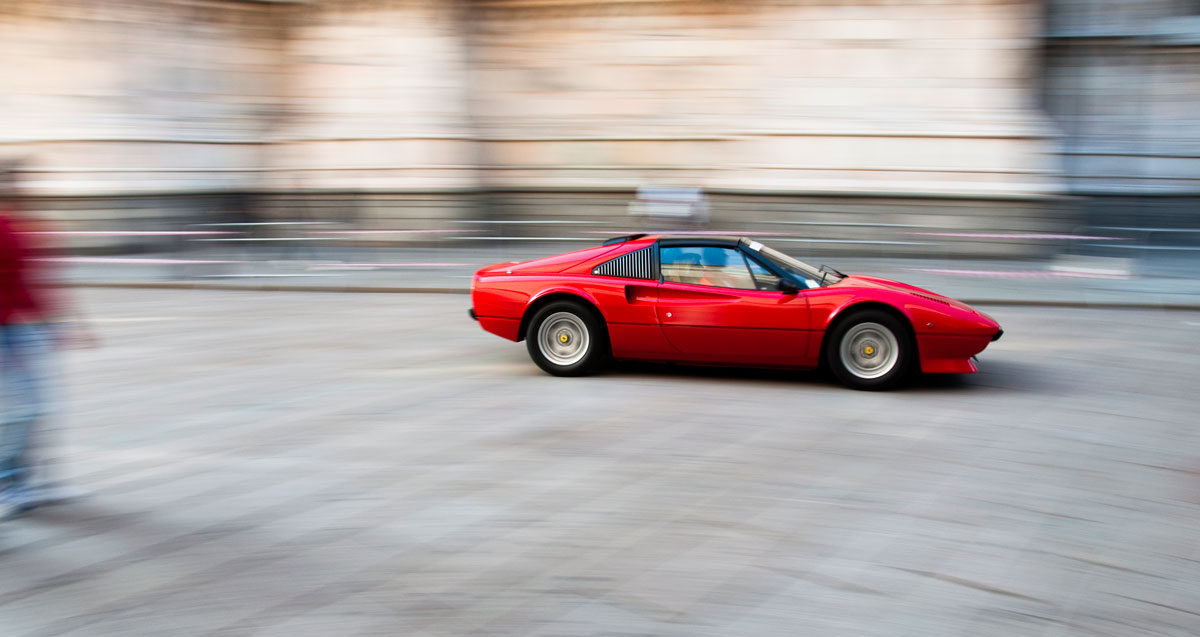The world’s largest speeding ticket
In August 2010, a 37-year-old Swede living in Switzerland received the largest speeding ticket in world history.
He was caught by police cameras on a highway between Bern and Lausanne, where his speed was measured at about 290 km/h, which was a violation of 170 km/h.
The speeding fine amounted to the staggering amount of 726,000 €. The vehicle being driven was a Mercedes SLS.

Fact: In some countries, the speeder’s income affects the amount of the speeding fine – therefore speeding fines can amount to millions of dollars in some places
Where you shouldn’t be speeding
In some countries, the amount of the fine is calculated on the basis of the speeding offense in combination with the speeder’s income. This is the case in Switzerland and Finland, which have also issued the five largest speeding fines in the history of the world:
- 726.000 € (Switzerland): A 37-year-old Swede received a fine for driving 290 km/h, which was 170 km/h over the limit (see above).
- 207.600 € (Switzerland): A Swiss man was fined this huge amount for speeding in his Testarossa. The judge said: “The defendant ignored traffic laws with his powerful vehicle – purely for the joy of high speed“.
- 170.000 € (Finland): The heir to the Finnish sausage king, Jussi Salonoja, received this speeding ticket in 2004 for exceeding the speed limit by 40 km/h. Shortly before, a Finnish taxi driver was fined €360 for exceeding the speed limit by 104 km/h.
- 116.000 € (Finland): Finnish Nokia CEO Anssi Vanjoki received this speeding ticket in 2001 after driving 76 km/h on his Harley Davidson in a 50 km/h speed limit zone. However, this fine was reduced by 95% because Vanjoki went bankrupt shortly afterwards.
- 111.888 € (Finland): Finnish entrepreneur Jari Bär received this speeding ticket for driving 82 km/h on a road where the speed limit was 60 km/h. If he had driven just 2 km/h slower, he would have gotten away with a fine of €115.
The world’s first speeding ticket
Silent film actor Harry Myers (1875-1938) received Ohio History Central’s first speeding ticket after breaking the speed limit on West Third Street in Dayton, Ohio, in 1904. According to police, Harry was traveling 12 mph (about 19 km/h), which was faster than the 10 mph (about 16 km/h) speed limit.
Harry was understandably unhappy with the decision, as it was based solely on the judgment of a police officer (at the time, there were no instruments to measure vehicle speed – such as speedometers or speed cameras).
Helsingør motorway
In June 2015, several Danish media outlets reported a new speeding ticket record in Denmark:
- In connection with roadworks on the Helsingør highway, no less than 402 speeders were registered in 4 hours.
- The record was set because there was roadworks and the speed limit was reduced to 50 km/h.
- As many as 40% of the passing drivers were breaking the speed limit.
- Result: 2 drivers received unconditional driving license suspensions, 190 drivers received conditional driving license suspensions, 209 drivers received driving disqualifications.
- The total fine was approximately DKK 4 million.
The Danish record
Although the measurement on the Helsingør motorway had record status for a period of time, a new Danish record measurement (in the number of drivers flashed in 4 hours) was set in March 2016:
- At the exit of the Limfjord tunnel (Vendsyssel side), more than 2800 vehicles were flashed in about 4 hours.
- The total number of vehicles checked was about 7000, so about 40% was speeding.
- The speed limit on the stretch of road was 90 km/h.
- The total fine was around DKK 4 million.
Speeding ticket ended his career
The vice chairman of the government’s Road Safety Commission, Jacob Buksti, chose to resign on October 30, 2003, after he was stopped by the police on Saturday, October 25, 2003, for driving 173 km/h on a highway near Ringsted, where the speed limit was 110 km/h.
The speeding fine was DKK 2500. Prior to the fine, Jacob Buksti had several times been chasing speeders on Danish roads and on his website you could read the following:
“And to those who try to trivialize even a small violation of the speed limit, I would ask the question, does that mean that a small violation of the blood alcohol limit doesn’t matter either?”
The traffic offense contributed to him not being re-elected to the Danish Parliament in the February 8, 2005 elections.





